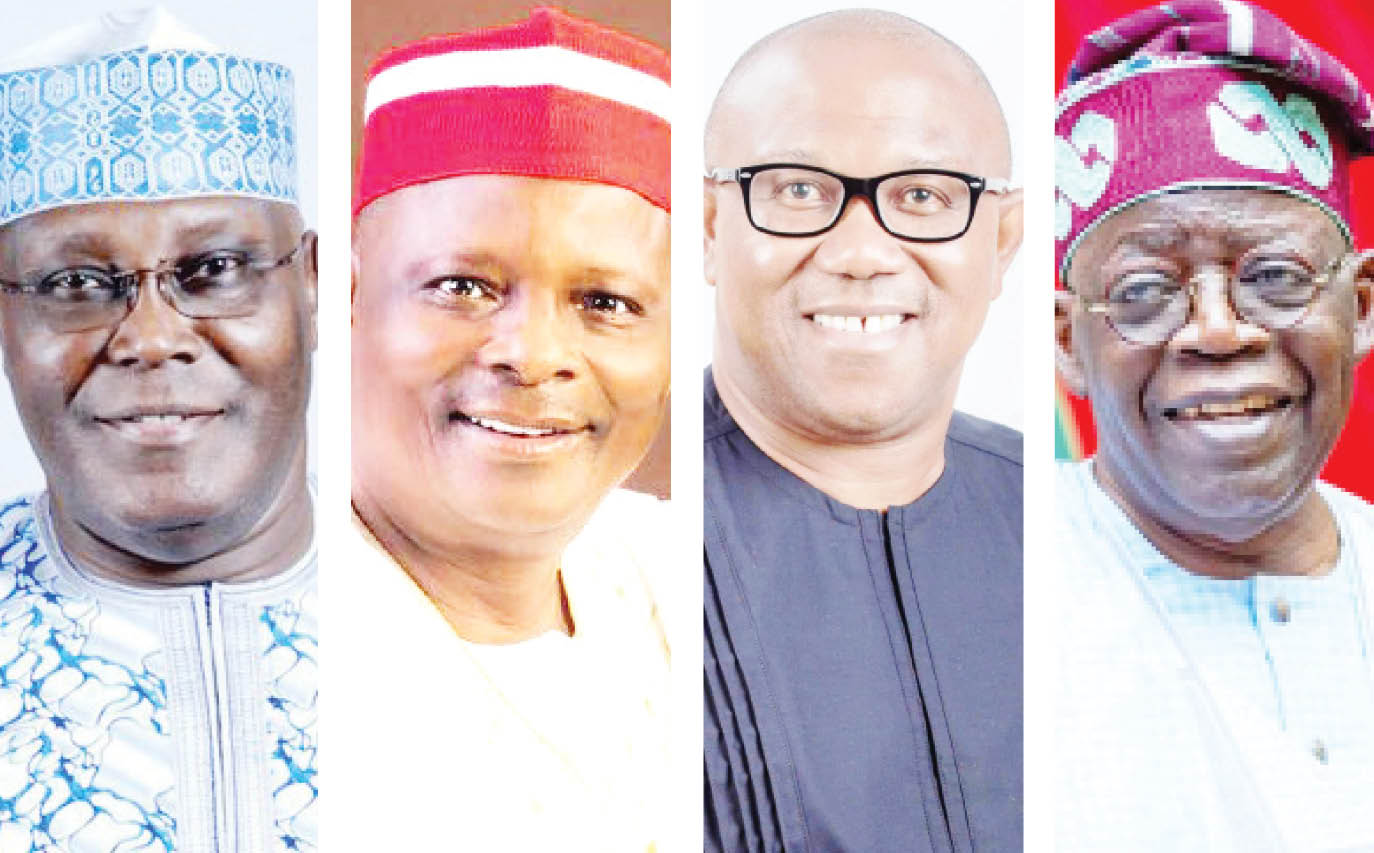Nigeria’s leadership: Any hope for the better
Nigeria stands on the three legs of the tripod, namely Igbo, Yoruba, and the Hausa/Fulani. She is a nation of nations, with more than 250 ethnic and linguistic groups. And it is said that one out of every five black persons on earth is a Nigerian. In addition to her possession of ethnic and religious […]

Atike, Kwankwaso, Obi & Tinubu
Nigeria stands on the three legs of the tripod, namely Igbo, Yoruba, and the Hausa/Fulani. She is a nation of nations, with more than 250 ethnic and linguistic groups. And it is said that one out of every five black persons on earth is a Nigerian.
In addition to her possession of ethnic and religious diversities and immense human resources, Nigeria is blessed with abundant natural resources.
But for all our immense human and material resources, Nigeria still brings up the rear on the ladder of global development. So why is Nigeria, a well -endowed country, still trapped in the cocoon of economic and technological backwardness?
The fact is that we have not got it right, politically since we became a politically independent country in 1960. Is there not a nexus between good political leadership and national development? The answer to this question is an emphatic yes.
Our political recruitment processes are hinged on the culture of imposition of leaders on the populace. And the factors of ethnicity and religion play a major role in the emergence of national leaders in Nigeria.
Consequently, Nigeria is mired in the mud of economic stagnation and caught in the quagmire of technological backwardness.
We are not unaware that it is only visionary and conscientious political leaders that can imagine and envision the type of countries they want. And they will work assiduously, conscientiously and patriotically to achieve their lofty dreams about their countries.
It is sad that since the demise of such erudite First Republic politicians as Mokwugo Okoye, Osita Agwuna, Obafemi Awolowo, Mathew Mbu, Nnamdi Azikiwe, Tafawa Balewa, and others, our political arena has been filled with less patriotic persons.
We now have political leaders, who are ethnic chauvinists and religious bigots. And they perceive their occupation of exalted political offices as ample opportunities to loot our national treasury.
Nigeria, as it is today, needs reimagining and remaking so as to place it on the path of national development. But only a visionary and competent political leadership can revamp our comatose economy, ignite our country’s industrialisation, and jumpstart our technological innovation and development.
Unfortunately, some of those jostling for the topmost political jobs in Nigeria are flaunting only their ethnic origins, religious faiths and past lackluster leadership scorecards. They are destitute of probity, fealty, leadership qualities, political ideologies, and forbearance.
But at this critical juncture in Nigeria’s political odyssey, Nigeria needs a president, who possesses leadership qualities, fealty, knowledge and pan-Nigerian dreams and visions. Such a president as we need must be knowledgeable and well-acquainted with our national problems in order that he can solve our multifarious national problems and harness our immense human and material resources to drive our developmental initiatives.
And Nigeria, which is divided along ethnic and religious lines, does not need a president, who will pander to ethnic and religious sentiments. Nigerians are yearning for a president, who will perceive the entire country as his constituency and execute measures to disabuse the minds of some Nigerians of the feelings and thoughts that they are being marginalised.
So it behooves us to be circumspect when we are choosing our president. We should not consider the factors of religion and ethnicity when casting our votes in the presidential election. Rather, we should cast our votes for a presidential candidate who is competent, patriotic, healthy, knowledgeable, honest and scrupulous.
Chiedu Uche Okoye resides in Uruowulu-Obosi, Anambra State
